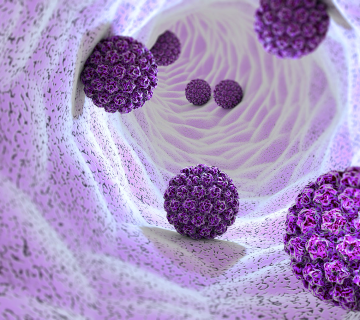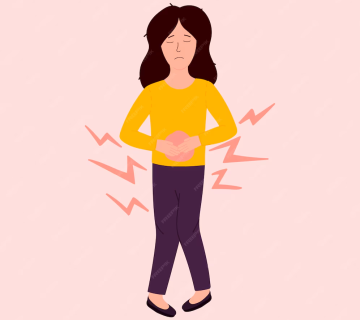
Herbal Treatment for Pelvic Inflammatory Disease: A Comprehensive Guide
Pelvic Inflammatory Disease (PID) is a serious infection affecting the female reproductive organs. Many women experience pain, discomfort, and anxiety when dealing with PID. While conventional medical treatments (like antibiotics) are standard, there is growing interest in herbal remedies for PID due to their natural anti-inflammatory and antibacterial properties, as well as fewer reported side effects. This article takes a deep dive into herbal treatments for Pelvic Inflammatory Disease, covering everything from the basics of PID to the latest research on how natural remedies may help.
Disclaimer: The information provided here is for educational purposes only and should not replace medical advice. Always consult a healthcare professional before starting any new treatment.
Understanding Pelvic Inflammatory Disease
What Is PID?
Pelvic Inflammatory Disease (PID) is an infection of the female reproductive organs, including the uterus, fallopian tubes, and ovaries. It typically occurs when bacteria ascend from the vagina or cervix to the upper genital tract. In many cases, PID is related to sexually transmitted infections (STIs), such as Chlamydia or Gonorrhea. However, not all causes of PID are sexually transmitted; other bacteria can also be involved.
Key Points:
- PID can cause pelvic pain, abnormal vaginal discharge, fever, and painful urination.
- Untreated PID may lead to chronic pelvic pain, damage to the reproductive organs, and in some cases, fertility issues.
Common Risk Factors
- Unprotected Sex: Having multiple sexual partners or engaging in unprotected intercourse increases the likelihood of bacterial infection.
- Existing STIs: If you already have an STI, such as Chlamydia or Gonorrhea, you’re at higher risk of developing PID.
- Douching: Douching can disrupt the natural balance of vaginal flora and may push bacteria upwards into the uterus.
- IUD Insertion: Although relatively rare, there is a small risk of PID shortly after an intrauterine device (IUD) is placed.
Why Early Detection Is Important
When PID is detected early, antibiotics and other supportive measures can prevent complications. However, because symptoms can be mild or easily confused with other conditions, some women might go unnoticed for months. During that time, the infection can worsen. This is why regular gynecological check-ups and prompt attention to any abnormal symptoms are vital.
Why Consider Herbal Treatment for PID?
Conventional treatments for PID typically include antibiotics, pain relievers, and possibly hospitalization in severe cases. These approaches are important and can be life-saving. However, many people explore natural remedies for Pelvic Inflammatory Disease as a complement to standard care or as part of a more holistic approach.
Potential Benefits of Herbal Remedies
- Anti-inflammatory Effects: Many herbs have powerful inflammation-fighting properties, which can help reduce pelvic pain and swelling.
- Antibacterial or Antimicrobial Properties: Certain herbs contain compounds that inhibit bacterial growth, supporting your body’s natural defenses against infection.
- Fewer Side Effects: While antibiotics are crucial, they may cause gastrointestinal upset, allergic reactions, or develop antibiotic resistance when used frequently. Herbs tend to have fewer side effects, though they can still interact with medications, so caution is needed.
- Holistic Approach: Herbal treatments often address overall wellness, including immune system support, hormonal balance, and stress reduction.
Important Note: Herbs can complement, but not replace, conventional antibiotic therapy in acute PID cases. Always talk to your healthcare provider about combining treatments.
Top Herbal Treatments for PID
Below is an in-depth look at some of the most frequently mentioned herbs that may help manage PID symptoms. While research on herbal therapy for PID is still ongoing, many of these plants have been traditionally used for various reproductive issues and are backed by preliminary studies showing anti-inflammatory and antimicrobial effects.
1. Goldenseal
Goldenseal (Hydrastis canadensis) is renowned for its berberine content. Berberine has shown strong antimicrobial properties in laboratory studies.
Core Benefits:
- May help inhibit the growth of bacteria.
- Could reduce vaginal and pelvic inflammation.
How to Use:
- Often used as capsules or tinctures.
- Typical dosage ranges from 250 mg to 500 mg of standardized extract per day. However, consult a professional for personalized guidance.
Research Support:
- Some lab studies suggest berberine may be effective against bacteria commonly involved in PID. Human clinical trials are limited, so more data is needed.
Practical Tips:
- Prolonged use of goldenseal isn’t recommended, as it might affect gut flora and liver function.
- Avoid if pregnant or breastfeeding without professional guidance.
2. Garlic
Garlic (Allium sativum) is not just a flavorful cooking ingredient. It has been used medicinally for centuries.
Core Benefits:
- Contains allicin, a sulfur compound with antimicrobial properties.
- May help reduce inflammation in the pelvic region.
How to Use:
- Raw Garlic: Crushing or chopping fresh garlic helps release allicin. You can add it to meals or swallow small pieces like pills.
- Garlic Supplements: Capsules or tablets can be used for a more concentrated form of allicin.
Research Support:
- Some studies indicate garlic can inhibit the growth of certain bacteria.
- Clinical research on PID specifically is limited, but anecdotal evidence supports its use for genitourinary infections.
Practical Tips:
- If you dislike the strong odor, odorless garlic supplements are an alternative.
- Be mindful that high garlic intake can thin the blood, so consult a doctor if you’re on blood-thinning medication.
3. Turmeric
Turmeric (Curcuma longa) is a bright yellow spice that contains curcumin, its main active component. It is known for potent anti-inflammatory and antioxidant effects.
Core Benefits:
- May help ease pelvic pain and swelling.
- Exhibits some antimicrobial activity.
How to Use:
- Turmeric Powder in Food: Adding it to soups, stews, or smoothies.
- Curcumin Supplements: Standardized extracts often come in capsules, sometimes combined with black pepper extract (piperine) for better absorption.
Research Support:
- Numerous studies on curcumin confirm its anti-inflammatory benefits.
- More research is needed to directly connect turmeric use to improved PID outcomes.
Practical Tips:
- Combine turmeric with a healthy fat (like coconut oil) and black pepper to enhance absorption.
- Excessive doses might cause stomach upset.
4. Echinacea
Echinacea (Echinacea purpurea) is commonly associated with immune support.
Core Benefits:
- Believed to stimulate the immune system, helping your body fight off infections more efficiently.
- May reduce inflammation and swelling in the reproductive tract.
How to Use:
- Common forms include teas, capsules, and tinctures.
- Short-term use (2-3 weeks) is generally recommended for immune-boosting effects.
Research Support:
- Studies show Echinacea can improve immune function, though evidence on PID specifically is minimal.
- It’s often used during cold and flu season, but the same immune-boosting principles can apply to other infections.
Practical Tips:
- Best used at the onset of an infection or as a short-term supportive measure.
- Side effects are rare but can include mild rashes or an upset stomach in sensitive individuals.
5. Ginger
Ginger (Zingiber officinale) is well-known for its anti-inflammatory and antioxidant properties.
Core Benefits:
- May help relieve pelvic pain and discomfort due to its ability to ease inflammation.
- Can calm nausea or stomach irritation that sometimes accompanies antibiotic therapy.
How to Use:
- Fresh Ginger Tea: Boil peeled ginger slices in water for 10-15 minutes.
- Powdered Ginger: Commonly added to teas, soups, or taken in capsule form.
Research Support:
- Ginger has been studied for pain relief in conditions like osteoarthritis. While direct PID studies are limited, its broad anti-inflammatory action can be beneficial.
Practical Tips:
- Drinking ginger tea after meals can soothe digestion.
- Watch out for higher doses if you have blood clotting issues.
6. Green Tea
Green tea (Camellia sinensis) is rich in polyphenols like EGCG, known for strong antioxidant effects.
Core Benefits:
- May support the immune system and reduce harmful inflammation in the pelvis.
- Has mild antimicrobial properties.
How to Use:
- Brewed Tea: Enjoy 2-3 cups a day.
- Green Tea Extract Capsules: Available in supplement form for higher concentrations of EGCG.
Research Support:
- Some research indicates that green tea catechins help inhibit bacterial growth.
- No direct large-scale studies on PID yet, but the immune and anti-inflammatory benefits are well-documented.
Practical Tips:
- Avoid taking green tea supplements on an empty stomach to reduce potential side effects like nausea.
- Limit intake before bedtime if caffeine-sensitive.
7. Less Common but Potentially Beneficial Herbs
Below are additional herbs sometimes mentioned in traditional or complementary medicine systems for PID and other reproductive infections:
| Herb | Potential Benefits | Typical Use |
|---|---|---|
| Dong Quai (Angelica sinensis) | May help balance hormones and improve blood flow in the pelvic region. | Capsules, teas |
| Yarrow (Achillea millefolium) | Contains anti-inflammatory compounds and may reduce menstrual-related discomfort. | Teas, tinctures |
| Calendula (Calendula officinalis) | Known for its gentle antibacterial and anti-inflammatory properties. | Creams, teas, sitz baths |
| Black Cohosh (Actaea racemosa) | Traditionally used for women’s reproductive health, may help with pelvic discomfort. | Capsules, tinctures |
Note: Always consult a qualified herbalist or healthcare provider for the correct dosage and to ensure there are no interactions with other medications you may be taking.
Steps to Use Herbal Remedies Safely
Using herbs responsibly involves dosage awareness, quality control, and understanding potential interactions.
- Consult with a Professional: Seek guidance from a qualified herbalist or integrative medicine doctor, especially if you’re pregnant, breastfeeding, or taking other medications.
- Buy from Reputable Brands: Look for certifications like USP (United States Pharmacopeia) or NSF International to ensure product quality.
- Start Low and Go Slow: Introduce one herb at a time in a small dose to monitor for side effects.
- Be Consistent but Not Excessive: Follow recommended guidelines. More isn’t always better and can lead to toxicity.
- Monitor Your Symptoms: If symptoms worsen or don’t improve after a couple of weeks, seek medical advice.
Research and Clinical Evidence
While herbs have a long history of traditional use, modern scientific research on herbal treatments specifically for PID is still developing. Most studies focus on how these herbs help with general inflammation and immune support.
- Promising Lab Studies: Researchers have isolated compounds (like berberine in goldenseal or allicin in garlic) that show antibacterial and anti-inflammatory properties under laboratory conditions.
- Limited Human Trials: Large-scale clinical trials testing herbal formulas for PID specifically are lacking. However, smaller studies or anecdotal reports often support traditional claims.
- Holistic Perspectives: Many holistic practitioners combine herbal remedies with lifestyle changes and sometimes mild antibiotic treatments to manage mild to moderate PID.
Looking Ahead
Recent findings suggest that combining herbal extracts (such as a mix of turmeric, garlic, and ginger) may offer synergistic benefits. Ongoing research aims to identify the most effective combinations and dosages that work alongside conventional PID treatments.
Combining Herbs with Lifestyle Changes
Herbal remedies do not exist in a vacuum. They work best when supported by healthy habits.
1. Dietary Habits
- Increase Fiber and Nutrient Intake: A diet rich in fresh fruits, vegetables, and whole grains helps your body combat infections and inflammation.
- Stay Hydrated: Water assists in flushing out toxins and maintaining overall health.
- Limit Sugar and Processed Foods: High-sugar diets can disrupt the balance of gut and vaginal bacteria.
2. Stress Management
- Mindfulness or Meditation: Chronic stress can weaken your immune system, making infections worse. Just 5-10 minutes of deep breathing can help.
- Gentle Exercises: Activities like yoga, pilates, or short walks can improve blood circulation to the pelvic area, promoting healing.
3. Safe Sex Practices
- Use Condoms: This helps prevent the spread of STIs, which are a leading cause of PID.
- Regular Screenings: Visit your healthcare provider for routine STI checks, especially if you have multiple partners.
4. Adequate Rest
- Getting at least 7-8 hours of sleep supports the immune system and speeds recovery.
- Consider taking short rest breaks during the day if you feel fatigued.
Common Myths & Mistakes
When exploring herbal treatments for Pelvic Inflammatory Disease, it’s important to separate facts from fiction. Below are some misconceptions:
✔️ Myth 1: Herbs can fully replace antibiotics.
Reality: In acute or severe PID, antibiotics are essential. Herbs can help manage symptoms and provide supportive care but shouldn’t be a standalone treatment in serious cases.
✔️ Myth 2: More herbs = faster healing.
Reality: Overloading on supplements or mixing too many herbs at once can lead to side effects and potential herb-drug interactions.
✔️ Myth 3: All herbs are completely safe.
Reality: While often gentler than synthetic drugs, herbs can still cause allergic reactions or interfere with medications. Professional guidance is key.
✔️ Myth 4: You can self-diagnose PID at home.
Reality: PID symptoms can mimic other conditions like ovarian cysts or urinary tract infections. A proper medical diagnosis is crucial.
Additional and Overlooked Approaches
Aside from herbs, there are other natural therapies and lifestyle adjustments that can complement your PID treatment.
1. Sitz Baths with Herbal Additives
- Calendula or Chamomile Sitz Bath: Adding a few drops of calendula or chamomile extract to warm water can help soothe external irritation and mild pelvic discomfort.
- Epsom Salt Soaks: Epsom salt is rich in magnesium, which may help relax pelvic muscles.
2. Probiotics
- Yogurt, Kefir, or Probiotic Supplements: Maintaining a healthy balance of gut and vaginal flora can prevent harmful bacterial overgrowth.
- Lactobacillus strains are especially important for vaginal health.
3. Aromatherapy or Essential Oils
- Certain essential oils, like tea tree oil (diluted in a carrier oil), have antibacterial properties.
- Lavender oil can help relax tense pelvic muscles and ease stress.
Caution: Always dilute essential oils before applying to the skin, and avoid internal use unless advised by a trained professional.
4. Pelvic Floor Physical Therapy
- Pelvic floor therapy can reduce pain and help you regain normal function. This type of therapy involves specific exercises and may include gentle internal manipulations by a certified therapist.
5. Acupuncture
- Although more research is needed, acupuncture is used by some individuals to improve pelvic blood flow and alleviate pain.
Practical Checklist for Herbal PID Management
Here’s a quick “do” and “don’t” checklist to help you navigate herbal treatments for PID effectively:
✔️ Do
- Consult Professionals: Speak to a doctor or herbalist before starting any new herbal regimen.
- Combine with Healthy Habits: Support your healing with rest, a balanced diet, and safe sex practices.
- Be Consistent: Follow dosage instructions and track your symptoms.
- Research Quality Supplements: Look for reputable brands.
❌ Don’t
- Self-Medicate When Severe: If symptoms are intense (e.g., high fever, severe pain), seek immediate medical care.
- Mix Too Many Herbs: This can complicate treatment and increase side-effect risks.
- Ignore Side Effects: Stop use and consult a professional if you notice rashes, increased pain, or unusual symptoms.
- Skip Follow-Ups: Regular check-ups are essential, even if you feel better.
Sample Daily Routine for Herbal PID Support
Below is an example routine for someone exploring herbal assistance for mild PID symptoms, used alongside conventional treatment. (Always adjust according to individual medical advice.)
-
Morning (7 AM)
- Take a warm shower to relax pelvic muscles.
- 1 cup of green tea to start the day with antioxidant support.
- Light breakfast with fruit and whole grains.
-
Late Morning (10 AM)
- Herbal Supplement: Echinacea capsule (as advised by your healthcare provider).
- Gentle stretching or yoga focusing on hip and pelvic opening poses.
-
Lunch (12 PM)
- Meal rich in vegetables (like spinach, carrots, or bell peppers).
- Add garlic to your main dish.
- Drink enough water to stay hydrated.
-
Afternoon (3 PM)
- Herbal Tea: Turmeric-ginger tea with a pinch of black pepper.
- Short rest or meditation to reduce stress.
-
Evening (6 PM)
- Balanced Dinner with lean protein (fish or chicken), cooked vegetables, and whole grains.
- Add probiotic foods like yogurt or sauerkraut.
-
Before Bed (9 PM)
- Warm Sitz Bath with calendula extract if pelvic discomfort persists.
- Optional Goldenseal or other recommended herbal supplements (dosage as directed).
- Aim for 7-8 hours of quality sleep.
Final Thoughts and Interactive Section
Pelvic Inflammatory Disease can be frightening, but knowledge and proactive steps can significantly improve comfort and outcomes. Herbal treatments for PID, when used in combination with conventional antibiotics and healthy lifestyle habits, may offer additional relief and support your body’s natural healing processes. While many herbs show promise—such as goldenseal, garlic, turmeric, ginger, and Echinacea—it’s crucial to remember that no herbal remedy should replace standard medical care for acute PID.
We Want to Hear From You!
- Question of the Day: Have you tried any herbal remedies for pelvic or reproductive health? What was your experience like?
- Share a Tip: What dietary or lifestyle change made the biggest difference in your overall well-being while managing PID?
Feel free to leave your experiences, questions, or tips in the comments below. Your insights might help someone else who’s on the same journey!
Remember: Healing is a process that involves listening to your body, being consistent with treatments, and seeking professional advice when needed. You are not alone—there’s a supportive community out there, and resources like this guide can help you find what works best for you.




No comment